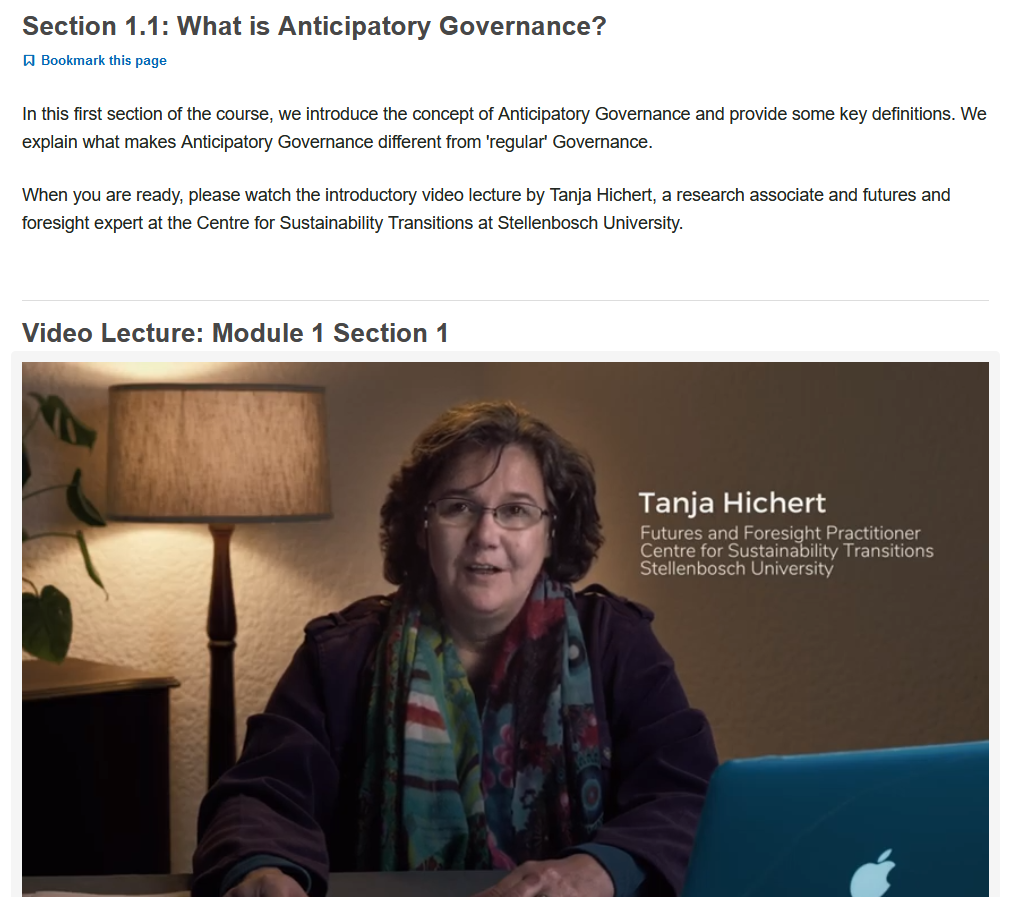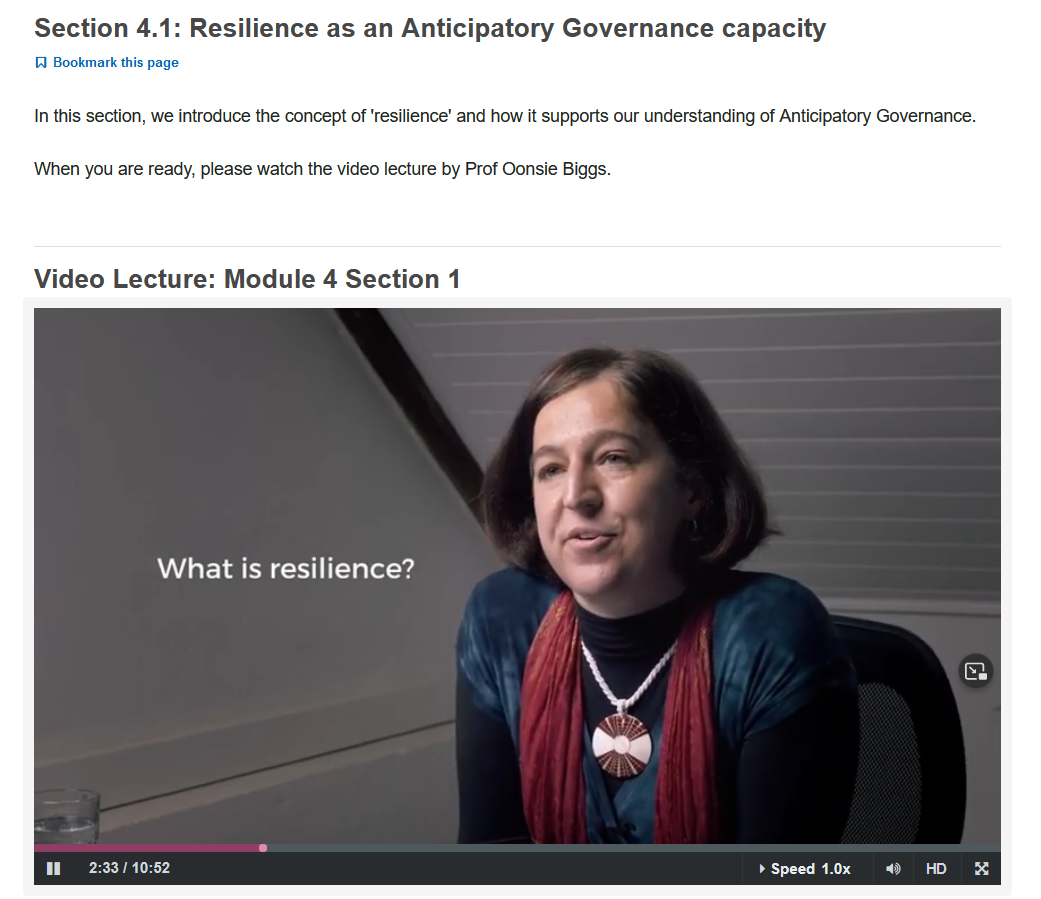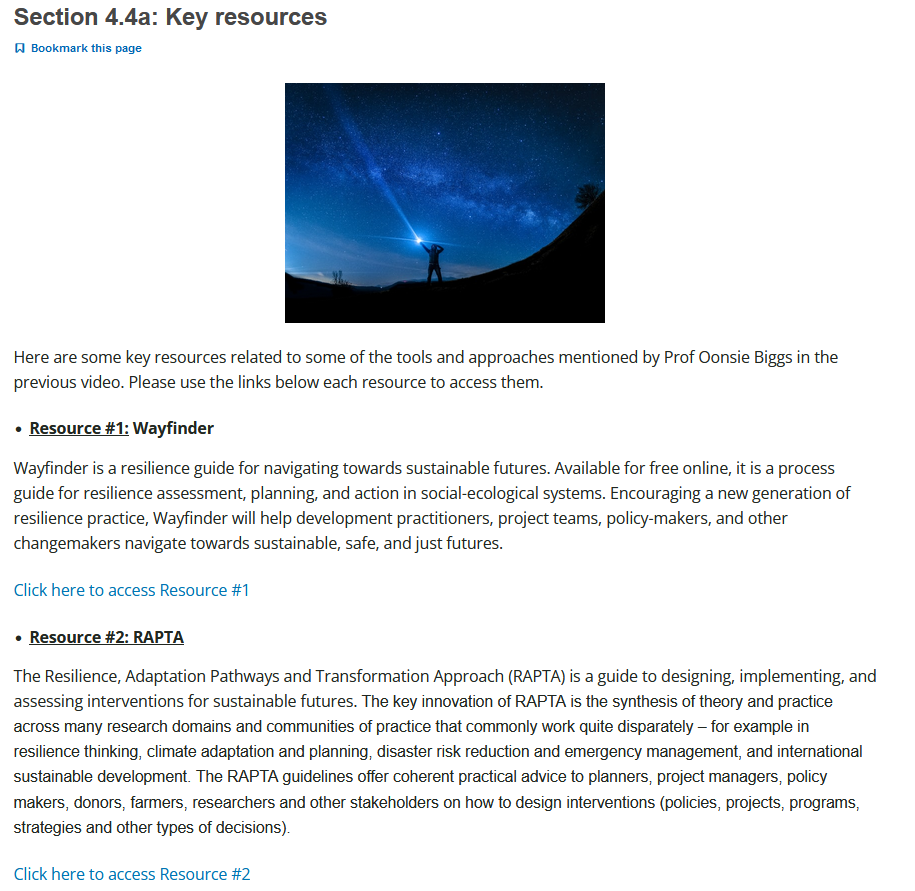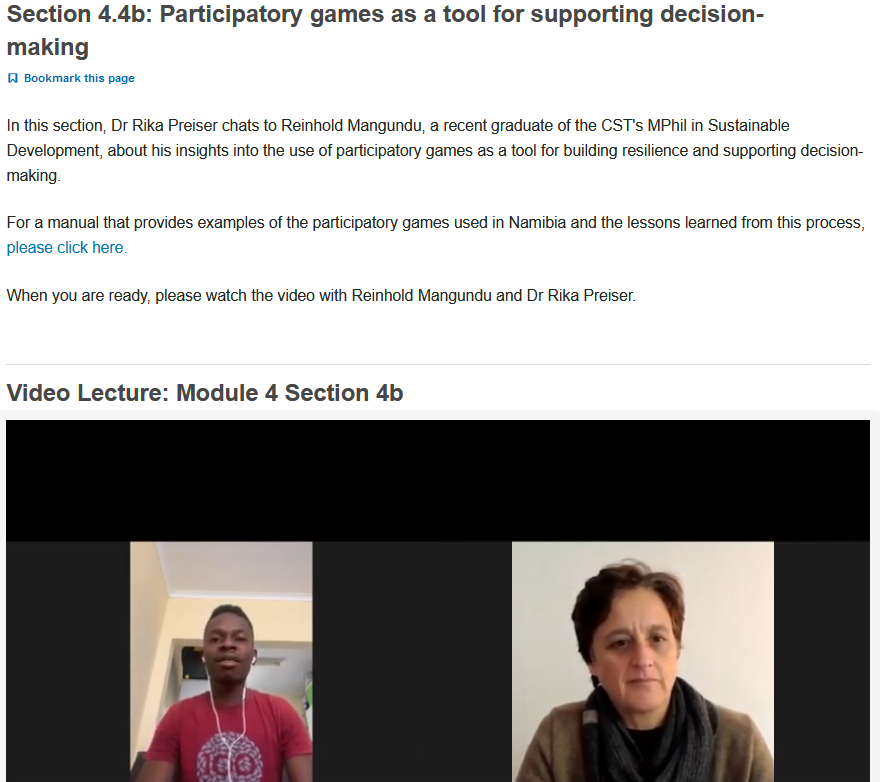The CST, in partnership with the USAID Resilient Waters program in Southern Africa, has developed and launched a free online short course titled “Anticipatory Governance: New ways of sense-making and navigating for uncertainty”. The self-paced online course, offered for free on the UNESCO Open Learning platform, is available from 1 November 2021 until 31 March 2022.
Drawing on the expertise of CST’s researchers in the fields of foresight and futures literacy, social-ecological resilience, and complex adaptive systems, this self-paced course highlights the approaches and tools for exploring how to foster governance capacities to explore, envision, and plan for change and uncertainty. This course introduces the concept of anticipatory governance as an approach for dealing with complexity and future uncertainty, by governing in the present in a way that is adaptive to or can shape uncertain futures.
“The anticipatory governance course has expanded my reasoning about the future and opened new senses of thinking to tackle some issues common to my country. I really appreciate the opportunity given by the course to help chart a new path for tackling issues of climate change, ….water availability, flooding… in Nigeria.”
– Professional from Nigeria
“Thank you for preparing and sharing this wonderful opportunity to learn about anticipatory governance… It was real and absolutely applicable in today’s and future generations.”
– Postgraduate student from Tanzania
|
|
The learning objectives for this course are to:
- Introduce diverse definitions of, and approaches to, anticipatory governance;
- Identify key participatory futures tools for envisioning and navigating towards sustainable and just futures;
- Explore case studies of how anticipatory governance has been applied in different ways across a variety of contexts, with a focus on examples from Southern Africa.
“I was impressed by the coverage and diversity of material… I liked the readings very much – they are a great resource… I think this is an important course for future policy at every level worldwide…. I will go through the course again because there is much more in it than I took in the first time.”
– Academic from a Research Centre in the United Kingdom (UK)
“Good equilibrium between videos and reading references (not too long)… access to free toolkits and methodologies that can help to start drafting and brainstorming about my next interventions.”
– Academic from a Research Centre in Mozambique
With almost 650 learners from 38 countries already enrolled, and more than 80 certificates of completion issued within the first 3 months, this online course introduces learners to the tools for exploring and navigating future scenarios and social-ecological challenges. Aimed at practitioners, researchers, and managers, this course identifies key participatory foresight and futuring tools that can improve decision-making and the governance of complex systems. Case studies from Southern Africa showcase the ways in which these tools have and can be applied to co-design desirable visions of the future and to identify the diverse pathways for navigating towards socially just and sustainable futures.
|
|
The self-paced, online course includes video lectures by experts and guest speakers in foresight, anticipatory governance, complex adaptive systems, and resilience from the CST at Stellenbosch University, the Department of Politics and International Relations at the University of Johannesburg, the African Centre for Disaster Studies at North-West University, and the Wits School of Governance at Wits University. The course material also includes case studies from Southern Africa, examples of participatory methods and toolkits for envisioning and navigating towards just futures, and discussion forums where learners can share their reflections and examples of applying anticipatory governance principles in their research and practice.
To start your learning journey and explore new ways of sense-making and navigating for uncertainty, it’s not too late to enroll in our free, online course on Anticipatory Governance:
https://openlearning.unesco.org/courses/course-v1:RWP+01+2021_01/about.
Watch our short video introduction to the course: https://youtu.be/sFPtcVJSyuQ
Course available online until 31 March 2022





 Case study of participatory games used by Reinhold Mangundu in Namibia
Case study of participatory games used by Reinhold Mangundu in Namibia